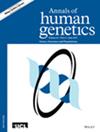Gastroesophageal reflux disease increases predisposition to severe COVID-19: Insights from integrated Mendelian randomization and genetic analysis
Abstract
Objective
This study aims to investigate the potential causal relationship, shared genomic loci, as well as potential molecular pathways and tissue-specific expression patterns between gastroesophageal reflux disease (GERD) and the risk of hospitalized/severe 2019 coronavirus disease (COVID-19).
Methods
We employed linkage disequilibrium score regression and bidirectional Mendelian randomization (MR) analysis to explore potential genetic associations between GERD (N = 602,604) and hospitalized COVID-19 (N = 2095,324) as well as severe COVID-19 (N = 1086,211). Additionally, shared genomic loci were extracted from common pivotal regions, further confirmed through corresponding colocalization analyses. GERD-driven molecular pathway network was constructed using extensive literature data mining to understand the molecular-level impacts of GERD on COVID-19.
Results
Our results revealed a significant positive genetic correlation between GERD and both hospitalized (rg = 0.418) and severe COVID-19 (rg = 0.314). Furthermore, the MR analysis demonstrated a unidirectional causal effect of genetic predisposition to GERD on COVID-19 outcomes, including hospitalized COVID-19 (odds ratio [OR]: 1.33, 95% confidence interval [CI]: 1.27–1.44, p = 9.17e − 12) and severe COVID-19 (OR: 1.27, 95% CI: 1.18–1.37, p = 1.20e − 05). Additionally, GERD and both COVID-19 conditions shared one genomic locus with lead-SNPs rs1011407 and rs1123573, corresponding to the transcription factor BCL11A. Colocalization analysis further demonstrated a significant positive correlation between genome-wide association study and expression quantitative trait locus (eQTL) abnormalities, including rs1011407 (eQTL_p = 2.35e − 07) and rs1123573 (eQTL_p = 2.74e − 05). Molecular pathway analysis indicated that GERD might promote the progression of COVID-19 by inducting immune-activated and inflammation-related pathways.
Conclusion
These findings confirm that genetically determined GERD may increase the susceptibility to hospitalized/severe COVID-19. The shared genetic loci and the potential molecular pathways offer valuable insights into causal connections between GERD and COVID-19.


 求助内容:
求助内容: 应助结果提醒方式:
应助结果提醒方式:


